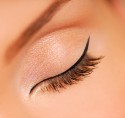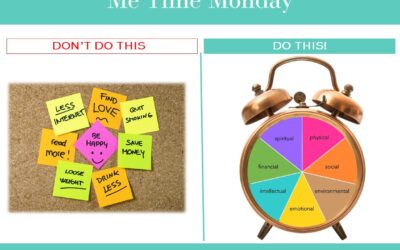 Tomorrow, Friday, June 21, is the summer solstice – the one day during the year we can count on a few extra minutes of sunshine. It is known as “the longest day of the year” which is why the Alzheimer’s Association has chosen the date to hold its Longest Day Campaign – a time to raise awareness and funds for those who suffer from the disease known as the long good-bye.
Tomorrow, Friday, June 21, is the summer solstice – the one day during the year we can count on a few extra minutes of sunshine. It is known as “the longest day of the year” which is why the Alzheimer’s Association has chosen the date to hold its Longest Day Campaign – a time to raise awareness and funds for those who suffer from the disease known as the long good-bye.
I recently had a conversation with my mom who has a good friend suffering from dementia and my mom said, “Thank goodness we don’t have Alzheimer’s in our family history.” While this is true, I also know my grandparents and other ancestors may have escaped the diagnosis because they did not live long enough to encounter the disease. Longevity can be a blessing but the fact is the longer we live the more chance we have of facing the Alzheimer’s epidemic head-on. And while we know age can be a factor in developing the disease, we are also benefitting from increased awareness and research which is helping to identify Alzheimer’s earlier – those with early on-set dementia can be diagnosed as early as 30-60 years old.
Watch the PSA for the Alzheimer’s Association Longest Day Campaign filmed by the cast of Royal Pains on USA Network.
In Light of the Facts…
 In my effort to support the Longest Day campaign, following is a rundown of some of the statistics of dementia and Alzheimer’s disease (AD) you may not know (my awareness effort) and some tips on how to spend those few extra days tomorrow (my healthy prevention effort).
In my effort to support the Longest Day campaign, following is a rundown of some of the statistics of dementia and Alzheimer’s disease (AD) you may not know (my awareness effort) and some tips on how to spend those few extra days tomorrow (my healthy prevention effort).
- 5.4 million Americans and 36 million worldwide are living with Alzheimer’s disease.
- Every 68 seconds someone new develops AD.
- 1 in 2 over age 85 will develop dementia.
- Alzheimer’s is the only disease in the Top 10 causes of death that cannot be prevented, slowed or cured. It currently ranks 6th on the Top 10 list – a 66% increase since 2000.
- 50% of those with dementia are undiagnosed.
- 100% of adults with Down syndrome will develop Alzheimer’s after age 40.
- Sundowning happens in 20-40% of those with dementia or Alzheimer’s – it results in paranoia, agitation an sometimes outbursts or violence during the magic hour at dusk
- 15 million Americans are caregiving for someone with dementia or Alzheimer’s disease and they provide 17 billion hours of care.
- 1 in 7 of those diagnosed with Alzheimer’s live alone with no family caregiver support.
- Caregivers of those with dementia report more stress and depression than other caregivers.
Don’t Let the Sun Go Down on Me
Here are 6 things you can do tomorrow to soak up the extra sunshine and minutes on the longest day to help prevent “the long good-bye”:
1. Get exercise and eat nutritiously – A high BMI (score higher than 18-24) is linked to Alzheimer’s so get moving. And indulge in olive oil and flatbread during happy hour – olive oil is cited in several studies as having a substance that removes the beta-amyloid in the brain that causes Alzheimer’s.
2. Say “No” to movie popcorn – A University of Minnesota study showed the buttery flavoring (typically diacetyl, a chemical that gives a butter taste to popcorns, margarines and baked goods) can aggravate the symptoms of Alzheimer’s disease by increasing the clumping of beta amyloid proteins in the brain that cause Alzheimer’s.
3. Relax – Reducing stress through meditation or relaxation techniques soothes caregivers who are at the end of an emotional rope. Do 10 minutes of a relaxation or mediation exercise like Dr. Herbert Benson’s Relaxation Response, give yourself a self-massage or practice yoga poses to relieve stress.
4. Get outside – Vitamin D (received from sunshine) is great for warding off depression and helping to build strong bones. Get up from your desk or wherever you are sitting and take a 10-minute walk outside or ride your bike.
5. Stay social – Ward off depression by reaching out to family and friends – this is one way caregivers can cope and avoid Alzheimer’s themselves. A UCLA study found depression is a major risk factor for developing Alzheimer’s. Take your few extra minutes today and call a grandparent, mom or dad or other older relative or friend.
6. Work hard, play hard then get some good, restorative sleep – A 2012 study from the Washington University School of Medicine in St. Louis found participants who had more than five awakenings in an hour of sleep during the night are more likely to have preclinical Alzheimer’s disease.










0 Comments
Trackbacks/Pingbacks